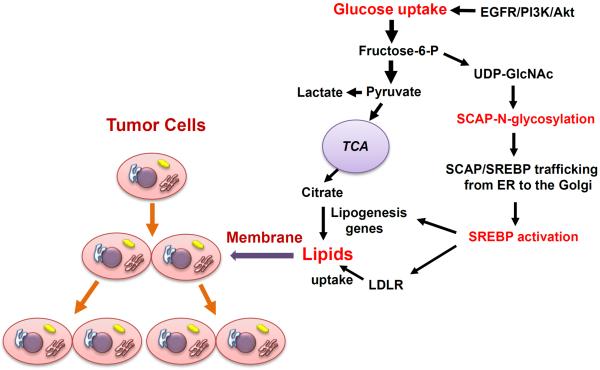Figure 1. Glucose promotes tumor growth as it activates lipid synthesis and uptake upon the N-glycosylation of SCAP.
Glucose-mediated N-glycosylation of SCAP promotes the trafficking of SCAP/SREBP from the ER to the Golgi, leading to subsequent SREBP activation. SREBP acts as a transcription factor to enhance the expression of lipogenesis genes and of the low-density lipoprotein receptor (LDLR), thereby increasing cellular lipids to support tumor growth. Oncogenic EGFR/PI3K/Akt signaling upregulates glucose uptake-SCAP N-glycosylation-SREBP activation pathway to promote tumor growth.
EGFR, epidermal growth factor (EGF) receptor; PI3K, phosphoinositide 3-kinase; UDP-GlcNAc, Uridine diphosphate (UDP)-N-acetylglucosame (GlcNAc); ER, endoplasmic reticulum; LDLR, low density lipoprotein (LDL) receptor. TCA, tricarboxylic acid cycle.

